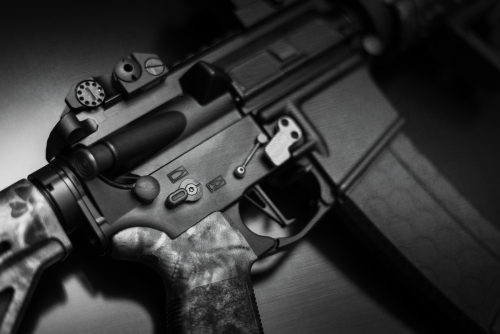
In a close vote of 217-213, the House advanced the Assault Weapons Bill (H.R. 1808) last week, marking the first vote on an assault weapons ban by the full House since 1994.
Originally introduced by U.S. Rep. David Cicilline (D-RI), the ban advanced with support from major gun safety organizations, such as Brady and Everytown for Gun Safety, healthcare associations like the American College of Physicians, and teaching groups such as the National Education Association. All united in support of a bill prohibiting the sale, manufacture, transfer, or possession of semiautomatic assault weapons and large capacity ammunition feeding devices and fully defining such weapons under the law.
“There are more guns than people in this country – more mass shootings than days in the year,” Cicilline said. “This is a uniquely American problem. In 2022 alone, more than 160 people have been killed by an assault weapon, and more than 245 have been injured. This bill will not stop all gun violence, but it will effectively decrease it. Researchers estimate that if we still had a federal assault weapons ban, we would see 70 percent fewer mass shooting deaths. And while nothing we do can bring back 70 percent of these victims to their family and friends, we can honor their memories with action and prevent more carnage moving forward. I urge the Senate to pass this bill immediately and send it to the President for his signature.”
The bill would include certain exceptions to the ban, such as grandfathering exceptions. Those possessed lawfully up to the date of enactment would remain legal and in no danger of repossession. Likewise, until that date, the sale or transfer of any semiautomatic assault weapon would still be allowed to continue following a background check. Hunters, gun collectors, farmers, sport shooters, and others who use grandfathered weapons for self-defense would also go unaffected by new prohibitions.
For those still in use, the bill would require semiautomatic assault weapons to be securely stored to prevent access by those banned from using them. Law enforcement, nuclear security, and certain other users would not be hit by new demands, though, being granted exemptions for the weapons and their large capacity feeding devices for their specific use.
The bill would also notably set up a new buyback incentive for states, allowing them to utilize Byrne Justice Assistance Grant funds for voluntary buyback programs related to semiautomatic assault weapons and large-capacity magazines.
If passed, the bill would ultimately define semiautomatic assault weapons as:
- Semiautomatic rifles, shotguns, and pistols, which accept a detachable ammunition feeding device and have at least one more feature that makes firearms particularly deadly
- Certain semiautomatic firearms with large capacity fixed ammunition feeding devices
- Specific prohibited firearms listed by model and manufacturer
- Frames, receivers, and copies of these firearms




